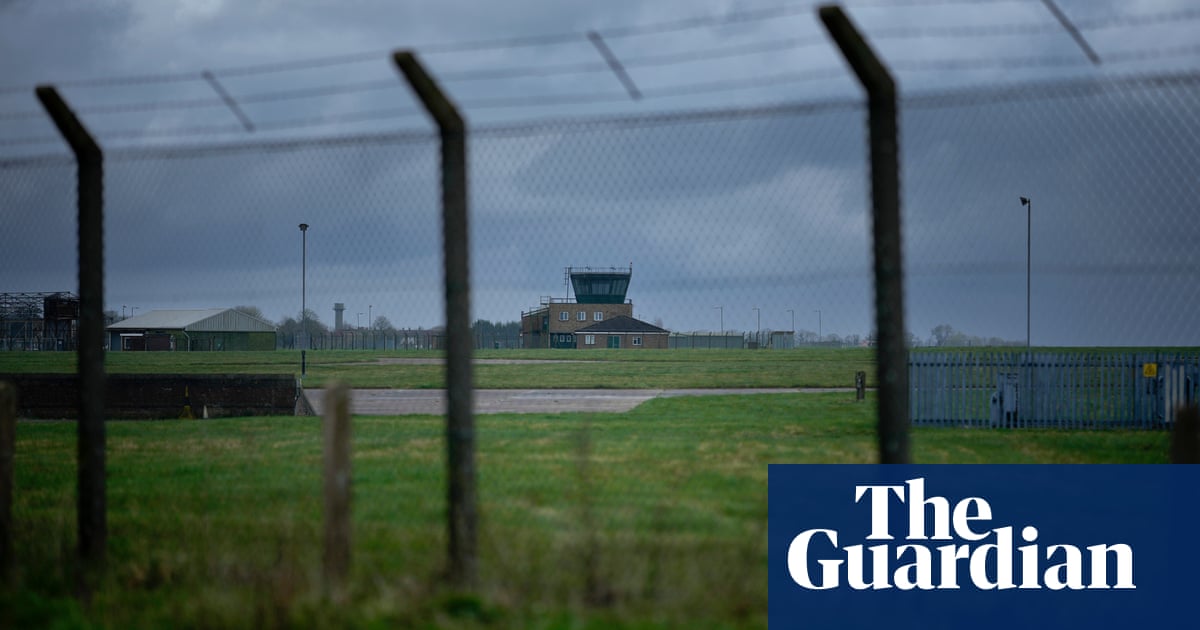
The full scale of Home Office failures in managing former military sites as makeshift accommodation for asylum seekers is laid bare in a raft of damning documents seen by the Guardian.
An unpublished report by prison inspectors and correspondence sent by the outgoing chief inspector of borders and immigration, David Bolt, highlight “serious mistakes” and “fundamental failures of leadership and planning” by the Home Office in its management of the Napier barracks site in Kent and Penally camp in Pembrokeshire.
In an explosive letter to Priti Patel, the home secretary, Bolt criticises her department’s failure to consult local authorities, its “wholly inadequate” health assessments, “extremely poor” communications and reveals some subcontractors working at the sites were breaching their visa conditions.
The final inspection report by Her Majesty’s Inspectorate of Prisons (HMIP) on the two sites reveals the existence of “an isolation block” at Napier, a decrepit building deemed “unfit for habitation” used to hold people at high-risk of self-harm alongside residents who may have been children and were awaiting an age assessment.
The report confirms that Public Health England and Public Health Wales both advised against accommodating men in multi-occupancy buildings during a pandemic – and reveals the Home Office opened the sites before any recommendations were implemented. About 200 of the 380 men held in the camp contracted Covid-19.
“Given the cramped communal conditions and unworkable cohorting at Napier, once one person was infected a large-scale outbreak was virtually inevitable,” the report says.
The findings by the two inspectorates will be seen as a vindication of the serious concerns repeatedly raised by medical professionals, lawyers, volunteers and humanitarian organisations over the dire conditions at Napier and Penally, which were run by private contractor, Clearsprings Ready Homes, on behalf of the Home Office.
Penally was closed in March but Napier Barracks, near Folkestone, continues to accommodate asylum seekers, and, despite the number of residents being reduced to zero, the Home Office plans to increase this in the coming weeks to more than 300.
In his letter to Patel, Bolt said the Home Office’s failure to consult local stakeholders on whose services and support the camps would be reliant before taking the decision to proceed “was a serious mistake”, adding “the need to move at speed is not a satisfactory excuse”.
“The fact that in both cases local stakeholders learned of the decision via rumours rather than from the Home Office made matters worse. Professional courtesies aside, it is hard to see how the Home Office and Clearsprings Ready Homes were able to make an accurate assessment of the risks and suitability of either site without input from these stakeholders,” he said.
Bolt, who stepped down last month, said physical and mental health assessments of the men selected as suitable to be moved to Penally and Napier, were wholly inadequate, and revealed one of the asylum seekers was moved into Napier with an “active” case of TB.
He said at the heart of many problems, including a fire that broke out at Napier, was the “extremely poorly managed” communication with the men in both camps.
He heavily criticised the Home Office for its “hands-off” approach to the running of the sites, leaving it almost entirely to the inexperienced contractors, arguing the department “should have had a regular presence at both”.
The inspector raises concerns that some employees in Napier were living onsite in squalid and unsafe accommodation and were working in breach of their student visa conditions, and some were using insecure personal email addresses to convey personal information about the asylum seekers in an apparent data breach.
An interim report from HMIP was published in March, criticising the “filthy” conditions at Napier and Penally.
The full report, seen by the Guardian, goes further, hitting out at the Home Office and contractors for its poor management of the Napier and Penally.
“Managers at both sites lacked the experience and skills to run large-scale communal accommodation,” it reads.
“The Home Office gave CRH less than two weeks to make each site operational and did not adequately consult with local stakeholders, including health services, who needed to set up essential services for residents.”
The inspectorate said the Home Office had been “slow to recognise” the impact on residents of prolonged stays in accommodation that was not designed or intended for long-term residence.
“The resources, skills and assurance systems required to support long-term communal accommodation were inadequate at both sites,” the report says.
“On-site management structures were unclear, partly because of the multiple sub-contractors, and partly because of inadequate oversight by the Home Office, whose staff were rarely present at either site. There were fundamental failures of leadership and planning by the Home Office.”
The inspectors raise “serious safeguarding concerns” in relation to Napier.
More vulnerable residents were moved to a single room in a decrepit and wholly unsuitable six room “isolation block” with a nail protruding from the door frame, the report revealed.
Residents on the block did not have a radio or television, were watched by security guards with no training in managing safeguarding and self-harm risk, HMIP said.
One resident identified by the Home Office as a potential victim of trafficking remained at the barracks for a further 10 weeks before being transferred.
In another case, a medical charity informed the Home Office that the resident was a victim of torture who suffered from PTSD and poor mental health. The resident was not moved out until more than three weeks later.
Another actively suicidal resident had remained on the site for more than a month.
“The environment at both sites was impoverished, run down and unsuitable for longterm accommodation,” the report said.
Home Office staff were rarely present at either site, HMIP said, and the failures had led to “dangerous shortcomings in the nature of the accommodation”.
The eligibility criteria for the camp excluded those with serious health problems and vulnerability, the report said.
However, inspectors found that at least 31 residents had been transferred from the barracks to more suitable accommodation after health and safeguarding concerns were identified.
Following the Covid outbreak in January, there was no evidence of a risk assessment to determine the maximum Covid-19 safe occupancy at Napier.
The inspectors concluded there was “no reasonable prospect” of effective isolation bubbles being established in the event of a Covid-19 outbreak.
Commenting on the findings, Stuart McDonald, SNP MP and member of the home affairs select committee, said: “The Home Office simply dumped hundreds of vulnerable people in totally unsuitable accommodation – and dangerous given the global health pandemic – and washed its hands of responsibility by leaving completely unequipped subcontractors to take charge.”
He added: “Shockingly, far from wanting to close the barracks, the Tories apparently see this type of ‘warehousing’ as the future for asylum accommodation. This will be a disaster for everyone, but most importantly, for the vulnerable people whose health and wellbeing will suffer drastically as a result. The Tories cannot be trusted with the asylum system – far from fixing it, they are destroying it”.
A Home Office spokesperson said: “We cannot comment whilst legal proceedings are ongoing.”












